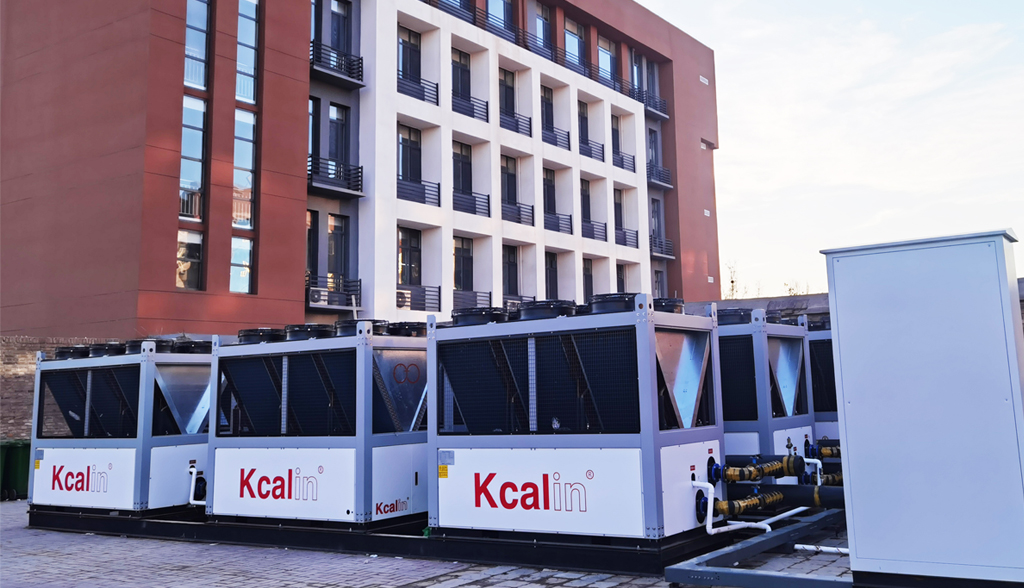The renovation plan for the school's hot water system should be selected based on specific needs, budget, and existing facility conditions. The following are several possible renovation plans for reference:
Air source heat pump hot water system: The air source heat pump hot water system can use the heat energy in the outdoor air to heat the hot water supply. This system does not require fuel combustion, therefore there is no smoke emission, and has the characteristics of environmental protection, safety, and efficiency. They can be adjusted according to the hot water demand of the school and are suitable for small to medium-sized schools. In addition, air source heat pump systems can also be combined with existing hot water systems to improve overall energy utilization efficiency.
Solar hot water system: The solar hot water system uses solar energy to heat and supply hot water. It includes components such as solar collectors, heat storage devices, and hot water pipelines. This system has potential energy-saving and environmental advantages for schools, especially in areas with ample sunlight. However, the performance of solar hot water systems may be affected by weather and season, and backup heat sources may be required to ensure continuous hot water supply.
Gas hot water boiler system: The gas hot water boiler system is a traditional hot water supply solution. It uses gas as fuel and generates heat energy through combustion to heat hot water. This system has advantages in heating efficiency and fast heating, and can meet the hot water needs of large-scale schools. However, the gas hot water boiler system will generate flue gas emissions, and it is necessary to ensure the safety and environmental protection of gas supply and flue gas emissions.
Ground source heat pump hot water system: The ground source heat pump hot water system uses the stable temperature in the underground soil or groundwater to heat the hot water supply. This system has a stable heating effect and can provide efficient and energy-saving hot water solutions. However, the construction cost of Ground source heat pump is high, and appropriate land space and geological conditions are required.

When choosing the renovation plan for the school's hot water system, the following factors need to be comprehensively considered:
Hot water demand: Evaluate the applicability of each renovation plan based on the actual hot water demand of the school. Factors such as the number of students in the school, the number of faculty and staff, and the number of bathrooms and restrooms need to be considered.
Budget and Investment Return: Evaluate the investment cost and long-term operation and maintenance costs of each renovation plan. At the same time, consider the expected energy-saving effects and energy cost savings of each plan to determine its investment return period.
Feasibility and applicability: Consider the feasibility and applicability of the renovation plan under existing facility conditions. For example, is there suitable space for installing new equipment, and is it necessary to adjust or modify the existing pipeline system.
Sustainability and environmental friendliness: Assess the impact and sustainability of renovation plans on the environment. Choose solutions that can reduce carbon emissions and dependence on natural resources, such as utilizing renewable energy or efficient energy-saving technologies.
Safety and reliability: Consider the safety and reliability of the renovation plan. Ensure that the selected system complies with relevant safety standards and regulations, and can provide reliable hot water supply.
Maintenance and service support: Understand the maintenance and service support required for the renovation plan. Ensure that reliable suppliers or contractors provide timely maintenance and support services to ensure the normal operation of the system.
When choosing a school hot water system renovation plan, it is recommended to collaborate with a professional energy consulting agency or system supplier to conduct energy assessment and feasibility analysis. They can provide customized solutions based on the specific situation of the school, and provide professional technical support and advice.







Comment